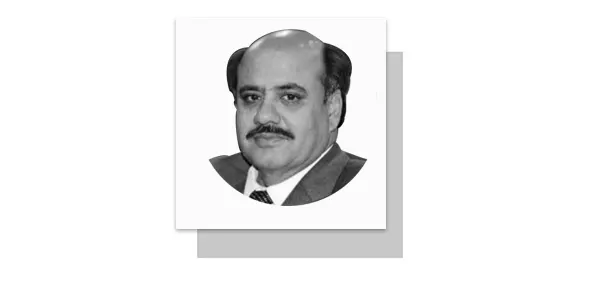GERMANY’S pronouncement to increase its defensive capabilities will constructively contribute to the military muscle and reputation of North Atlantic Treaty Organization. Simultaneously, it intensifies Russia’s security dilemma. The United States’ recent decision about the episodic deployment of the longer-range missiles in Germany triggered a strong response from Moscow. Germany already hosted the US nuclear weapons, being a founding member of NATO. However, the timing of the new missiles’ deployment is critical. It will influence the Kremlin’s European strategic posture and Europe’s strategic landscape. The Kremlin will take military measures to “counter-deter” NATO’s expanding European arsenal.
The Russian war against Ukraine since February 2024 has caused uncertainty and anxiety in Berlin. On February 27, 2022, Chancellor Olaf Scholz said in the German Parliament that the Russian invasion of Ukraine (February 24, 2024) was a Zeitenwende (turning point) for Europe and announced a radical shift in German foreign policy, i.e., a break with Germany’s traditional détente (Ostpolitik) policy towards Russia. Moreover, he announced a massive increase—a special fund of 100 billion Euros—in Germany’s defence spending to enhance military strength and capabilities.
NATO has planned to create separate logistics hubs in Black Sea cities and establish additional European missile facilities to solidify European defence and deter Russian aggression. Since the demise of I987, the Intermediate-Range Nuclear Forces Treaty, in 2019, Russians and Americans have been preparing to deploy intermediate-range nuclear forces in Europe. Notably, the 1987 INF Treaty signed by the United States and then-Soviet Union proscribed placing nuclear and conventional missiles with ranges from 500 to 5,500 kilometres (around 310 to 3,400 miles). Subsequently, both sides removed more than 2,600 weapons from the continent.
The Trump Administration exited the 1987 Intermediate-range Nuclear Forces (INF) Treaty in 2018 under the pretext that Moscow violated it by developing two battalions of the 9M729 cruise missile (SSC-8 Screwdriver) and shifting one battalion from the test site to an operational base in December 2016. Moscow left within 24 hours of the United States formally suspending its obligations under the Treaty.
The termination of the INF Treaty had failed to drag Europeans into the missile race with Russia. The Europeans, including Germany, soured the Trump administration’s expectation that they would finance the manufacturing of short-range and intermediate ballistic missiles, which would be deployed in Europe after the termination of the INF Treaty. The Europeans were unprepared for a new arms race with Russia in 2018-19. The European Union spokesperson requested both sides to remain engaged in constructive dialogue to preserve the INF Treaty because “the world doesn’t need a new arms race.” Consequently, despite the INF Treaty, the U.S. took time to deploy the new missiles to Europe.
The demise of the 1987 INF Treaty and the development of the Russian SSC-8 Screwdriver did not alter Germany’s strategic thinking until the Russians invaded Ukraine. The rapid transformation in the European strategic environment during the last two years changed Germany’s strategic outlook. On July 10, 2024, on the sidelines of the 2024 NATO summit in Washington, the U.S. and Germany agreed to deploy the US Tomahawk cruise missiles(with a range of 1,500 km) and the SM-6 missile on German soil for the first time since the late 1990s.They also announced the development of new long-range hypersonic weapons, having a speed of up to Mach 17 and a range of 1,700 miles, which will be deployed by 2026.Based in Germany, the hypersonic missiles can quickly strike targets as far away as Moscow. Chancellor Scholz said, “This decision has been a long time in the making and comes as no real surprise to anyone involved in security and peace policy.” Russia is not ignoring the acceleration of Germany’s rearmament. The Kremlin spokesman said the stationing of Tomahawk and hypersonic weapons in Europe was a “grave threat to our national security.”
Another puzzling development for the Kremlin was the NATO leaders’ decision during the Washington Summit on July 10, 2024, to establish NATO Security Assistance and Training for Ukraine—a new command in Wiesbaden, Germany—to coordinate the provision of military equipment and training for Ukraine, a pledge to donate Ukraine F-16s flying in the skies over Ukraine by this summer and provision of minimum 40 billion euros within the next year to strengthen Kiev’s fight against Russian forces. Moreover, Ukraine secured the stronger language of an ‘irreversible’ path towards NATO from the allies.
Russia’s assertive military manoeuvres have obstructed Georgia and Ukraine from joining NATO, which the Organization committed at the 2008 Bucharest Summit that Ukraine and Georgia “will become members of NATO.” Immediately, Russia occupied the provinces of Georgia (South Ossetia and Abkhazia) in October 2008, following annexed Crimea in March-April 2014 and launching military operations against Ukraine in February 2022. These assertive Russian military manoeuvres have compelled Germany to revamp its defence policy and solidify its defensive fence by increasing military cooperation with NATO.
The recent NATO summit reveals that the Allies, including Germany, have a consensus to acquire more power to escape the effects of Russia’s assertiveness in Europe. Nevertheless, the deployment of long-range missiles in Germany will cause a mirror response from the Kremlin. President Putin spokesman Dmitry Peskov said, “All of this will necessitate thoughtful, coordinated and effective responses from us to counter-deter NATO.” NATO’s military build-up and Germany’s deployment of long-range missiles, in turn, renders Moscow more insecure and compels it to prepare for the worst, i.e., the use of nuclear weapons. In summary, Germany’s strategic Zeitenwende and NATO members’ preparedness to invest in the defence industry and sporadic long-range missile deployments in Europe instead of engaging Russia in an arms control dialogue only intensify their security dilemma which can drive them to war even though they may not want to harm each other.
—The writer is professor at the School of Politics and International Relations, Quaid-i-Azam University.










